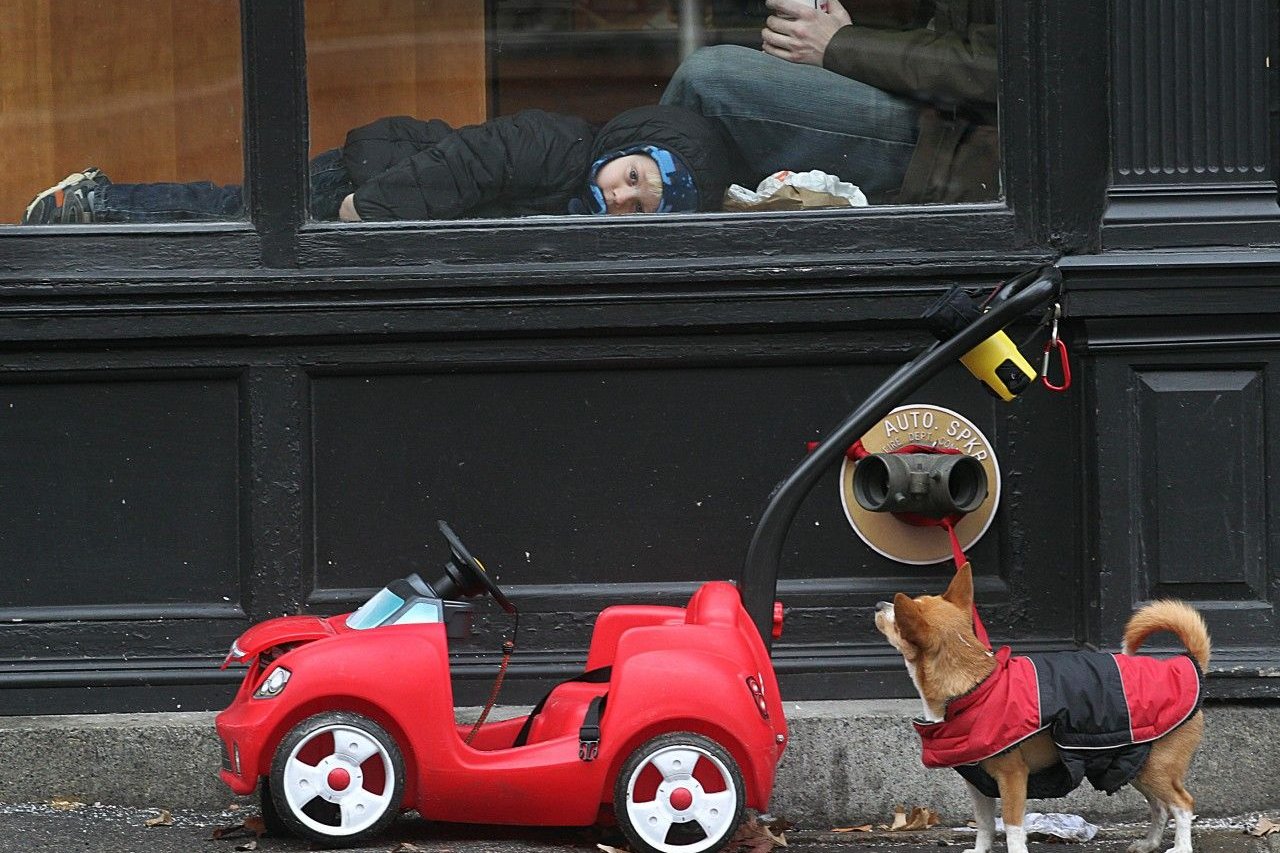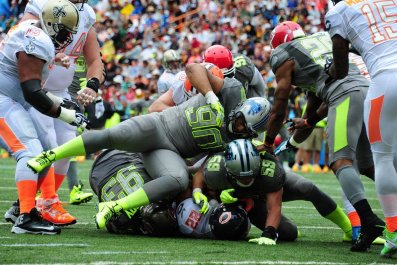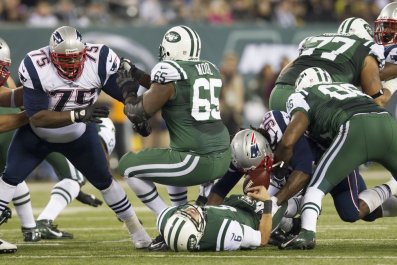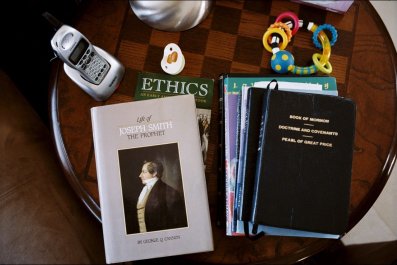Intrigued by a study showing parents were no happier than non-parents, Jennifer Senior, a contributing editor at New York magazine, travelled across the country to observe how - and maybe even ascertain why - too many parents make themselves miserable in a quest to raise smart, happy kids. Newsweek spoke with Senior about her new book, All Joy and No Fun, which explores the many mysteries of the modern family, including why mothers can't relax, and why neuroscience offers better child-rearing advice than any parenting book.
Newsweek: Doesn't every generation think their parenting challenges are unique?
JS: We're in the midst of this historic transition in which we don't know what our roles as parents are supposed to be. The two things we know we are supposed to do - prepare them for the future and make them happy - are both really vague, and not necessarily fair requirements.
When did this transition begin?
In the 1950s, when kids started leading more sheltered, education-focused lives and parents were suddenly working incredibly hard to give them all the things they needed. It got harder in the 1980s, when more women started working and we were suddenly trying to figure out how to raise our kids with two parents in the workforce. It got even harder when the world started to globalize. We now don't even know what we are raising our kids for. We cannot envision what our kids' jobs are going to be. There was a time when you inherited your way of life, your land and your profession. Your wisdom was of some use to [your kids]. Our wisdom is of so little use to our kids now.
Is that why modern parents feel overwhelmed?
Absent knowing what we're supposed to do, we drive ourselves crazy trying everything. Because we don't know what the future looks like we are preparing our kids for every possible version of the future. How insane is that? It's preparing them to be an understudy for every role on Broadway - not just Grizabella in Cats, but any cat, which is horrible!
But you also can't pick which cat your kid will be.
Right. You don't know what kind of cat they want to be. And that species of cat might not even exist yet. Imagine Sergey Brin or Larry Page as 6-year-olds, saying to their parents: "I'm going to invent a tool to search all the information in the world! And I'm going to call it Google!" And their mom says, "That's nice, dear. Go out and play on your bike."
Since our job is to prepare our children for a future we cannot see, we throw as many things as we can at them, hoping some will stick. It means signing them up for soccer so they can learn the meaning of teamwork and signing them up for chess lessons. You feel you have to distinguish your kid, and you're not sure what you're distinguishing them for.
My mom did not worry about this. It was enough to her to put me in a pen with two things in it. I came out fine.
Parents today are spending more focused time with their kids than their parents ever spent with them. The results are low scores for personal happiness. Can you explain what this has to do with psychologist Mihaly Csikszentmihalyi's concept of "flow"?
The most elegant line he had about flow was: "Flow is the sweet spot between boredom from too little stimulation and anxiety from too much." And one seldom has that - particularly with young children around. One of the privileges of adulthood you have is a long attention span; kids don't have as long an attention span and are constantly pulling you away from things because their needs feel very urgent to them. Kids generate a lot of anxiety and a lot of boredom in adults.
Csikszentmihalyi says flow is elusive in family life, and to generate more of it you have to have a plan. But as parents we know that even if you have a plan, half the time kids won't follow it. I asked him about this, and he acknowledged the plan thing doesn't always work out so well. It was deeply discouraging and yet funny.
Something that also interrupts flow is this "office in your pocket" feeling - we're always getting emails. I've heard some parents compare their kids to email: disruptions in the middle of something they are doing. We all guiltily know this is the wrong way to think about our kids.
How does neuroscience explain why raising children is such a challenge?
Thanks to neuroscience, we know a child's prefrontal cortex is barely developed. I think it's very useful for parents to know this, because it will make them stop trying to reason with their young children, who can't reason particularly well. They live in the permanent present. If they are traumatized, they don't understand the trauma will go away. It feels endless to them. Not having a cookie feels like the only enduring reality they have. Once you have an understanding of the science behind it all, it's a relief. All of a sudden you understand it's not your failure. It can also help you change your tactics.
I liked the image of children as little madmen.
Adam Phillips, the writer and former principal child psychotherapist at Charing Cross Hospital in London, said children were indistinguishable in many ways from actual madmen. They don't speak our language. They have no motor control. They are incontinent. They know only their own needs and desires. They are tyrants driven by their urges. If a grown person's response was to hit you or claw or start to shriek when something you did didn't please them, you'd call the cops. But you accept it as par for the course with kids.
In your book, you describe a study that measured stress-response through cortisol levels in parents. Fathers experienced their lowest levels of cortisol when they had free time. Women's cortisol levels only dropped when their partners helped around the house. What does this say about women today?
It explains everything. The tragedy lurking in that data point is, women can't luxuriate in their free time. Unless they know things are taken care of, they can't relax.
Middle-class parents are exhausting themselves pouring incredible resources into their children's lives. Is there a way to create some balance?
I don't have the answer to that. People live really lopsided lives. But so did all the people we really admire. If you're striving for balance, you've already got a high-class problem, because it means you're not working three jobs to make ends meet. You have some time to be with your children, which is a really good thing.
How did writing the book change you?
I got to see examples of really great parenting because I interviewed so many families, and I could rip off little tricks from parents. All the literature I read was really useful... But the problem about writing a book is you become fairly anxious quickly. You also become so consumed by the project that you have to fight to remember what's important in your life and not get too caught up that it competes for time with your kid. You can't just be a book-writing machine; you have to be a mom and a good one.
The irony is I've been giving myself a lot of grief for not being able to fairly distribute my time between my book and my kid. And I'm the person who keeps telling everyone to give themselves a break! My big plan after this book is to just hang out with my kid. It'll be like our own buddy movie....

























